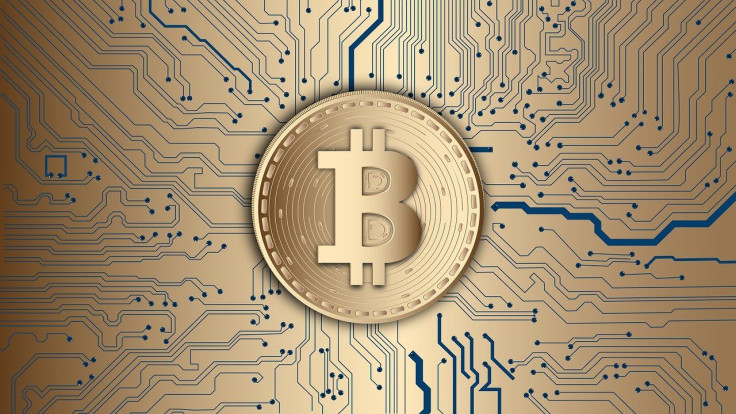How Nimbus Remedies the Present Shortcomings of DeFi?

The decentralized finance market, despite its popularity and rapid growth, remains limited due to certain challenges. The growth prospects and value of the Decentralized finance space for the society and economy, in general, are quite clear. A few industry complexities do not yet allow DeFi to fully develop and effectively provide financial services to users.
First and foremost, most DeFi protocols are focused on a single aspect of DeFi; they do not offer a holistic remedy for users’ pain points when it comes to accessing financial services. Not only users cannot get the services they need in one spot and are forced to spend extra time and pay fees, but this also causes several systemic problems for the DeFi industry as a whole:
● Restricted Decentralization - Despite the phenomenal growth, DeFi still consists of rather small companies. Most of such niche projects cannot build a user base big enough to truly decentralize the project. If very few people are engaged in staking a token, interacting with it, or even holding it, then the platform that uses it gets automatically centralized. It’s even the more so for the governance tokens. The structure of token distribution and circulation is extremely important to achieve the desired level of decentralization.
● Expensive transition between native tokens - Since most DeFi protocols offer a very limited number of revenue generation opportunities, users have to switch between protocols to diversify their portfolio. And since each protocol has its own native token, users have to make various "extra" transactions to exchange these tokens. As a result, the load on the network swells significantly. This load on the network with multiple transactions occurring due to a single token's limited functionality increases the margin of the participation fees. Due to this ripple effect, DeFi is losing one of its main advantages - inexpensiveness.
One effective solution to this problem could be the cooperation of DeFi projects. The approach is quite reasonable, but not without its drawbacks. For instance, tokens within such "confederation" of projects compete for users' attention and staking accordingly. And then there's the problem of overloading the parent blockchains and again driving up costs.
Another effective solution was proposed by the fintech company Nimbus, which has been on the market since 2019 and has already accumulated 50,000 users. Recently the company launched a new DAO-driven platform for decentralized applications (dApps) to provide users with 10 earning strategies within a single ecosystem. Moreover, full access to the ecosystem is provided by a single token: NBU. The market cap of NBU exceeded $35 million(currently it is available only on Nimbus platform) just in two days after the launch. According to the company’s roadmap, four decentralized applications will be presented in 2021:
● Nimbus IPO Hub dApp is a decentralized application that provides users with access to IPOs through liquidity pools. IPO Hub also eliminates red tape and the need to pay extra brokerage fees. The Nimbus team places extreme importance on making their dApps completely compliant, so investing in IPOs using crypto assets is a smooth and secure sail for crypto enthusiasts and those willing to finally benefit from this opportunity.
● Nimbus Crowdfunding dApp is a tool that allows people to invest in promising startups at an early stage of fundraising with access to both startup equity and convertible loans. Moreover, for maximum risk mitigation, startups will be selected using the same methodology used by venture capital funds and then DAO participants will have a final say. The funds will also be distributed based on smart-contracts for enhanced accountability and efficiency.
● Crypto Arbitrage Trading dApp is an arbitrage and trading tool. This is a decentralized version of the already working and popular (over 50,000 users) Nimbus Arbitrage-Trading bot. The company aims to implement innovative pool mechanics with enhanced risk mitigation and reward optimization for our users.
● P2P Lending dApp is a decentralized application that allows users to borrow and issue loans while minimizing risks through numerous techniques that increase the likelihood of debt recovery. There will also be an option to match a lender and a borrower based on location.
As a result, users get access to a significant part of the financial products (which are in demand in the DeFi community) on a single platform, Nimbus, and gain access to unique time-tested investment tools, such as IPOs. Moreover, the list of applications is not final - in the future, Nimbus plans to add new dApps, as well as integrate third-party dApps.
The use of a single token saves users from having to exchange them regularly, which saves time and money, reduces the load on the blockchain, and eliminates the problem of internal competition for the user base. Besides, the platform already has a sufficient user base for full decentralization, as well as resources for further development. And finally, its DAO has only 10% of governance tokens reserved for the Nimbus Organization, thus paving the way for full decentralization of control.
Can Nimbus solve all the DeFi market key problems? No. A single project cannot change the entire industry. However, it is likely that we see the "first swallow" of the new DeFi sector that genuinely implements the best practices of decentralization and provides users with realistic and efficient financial tools.





















